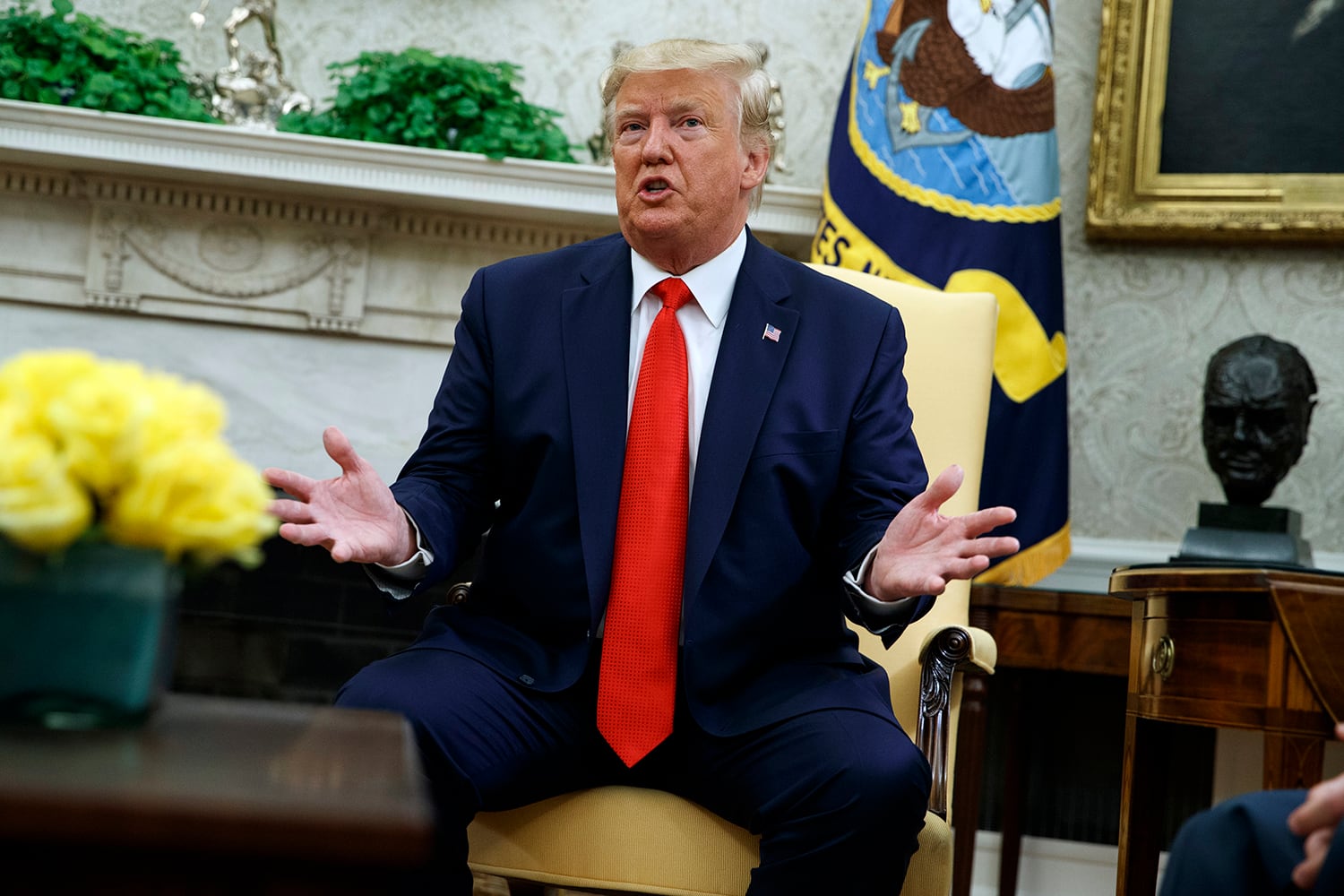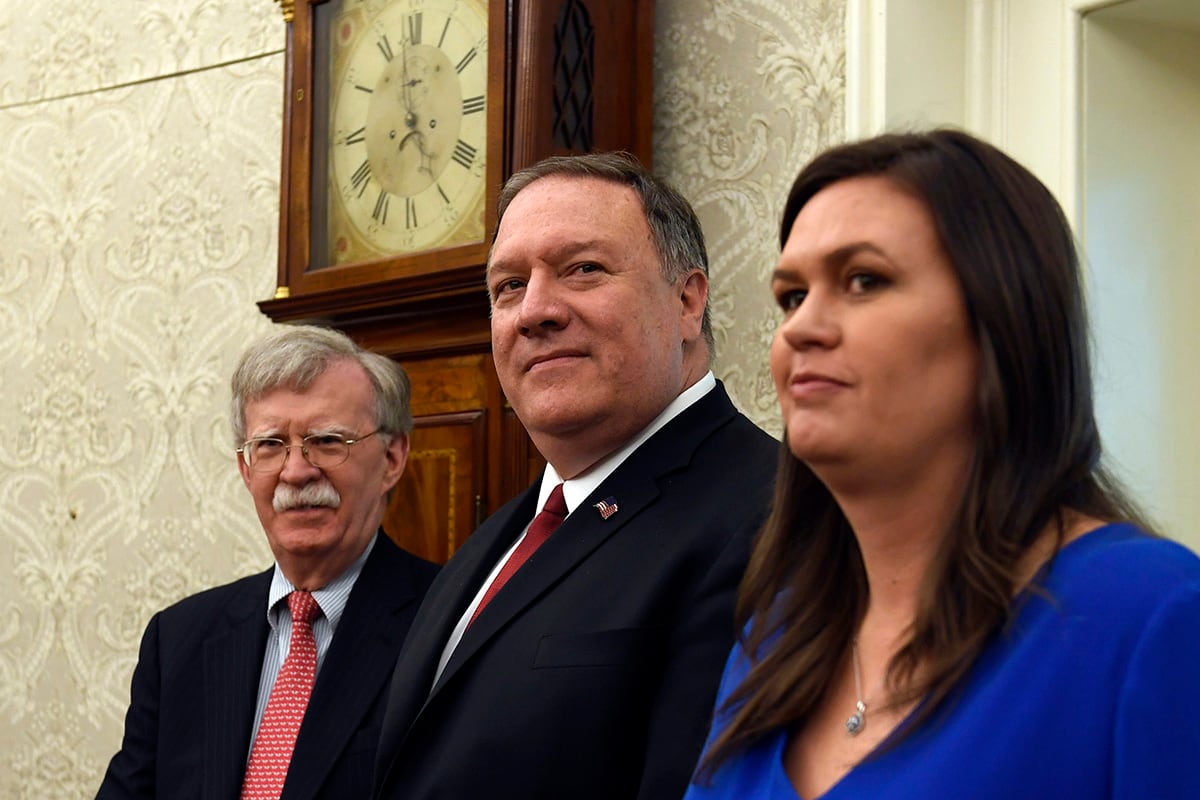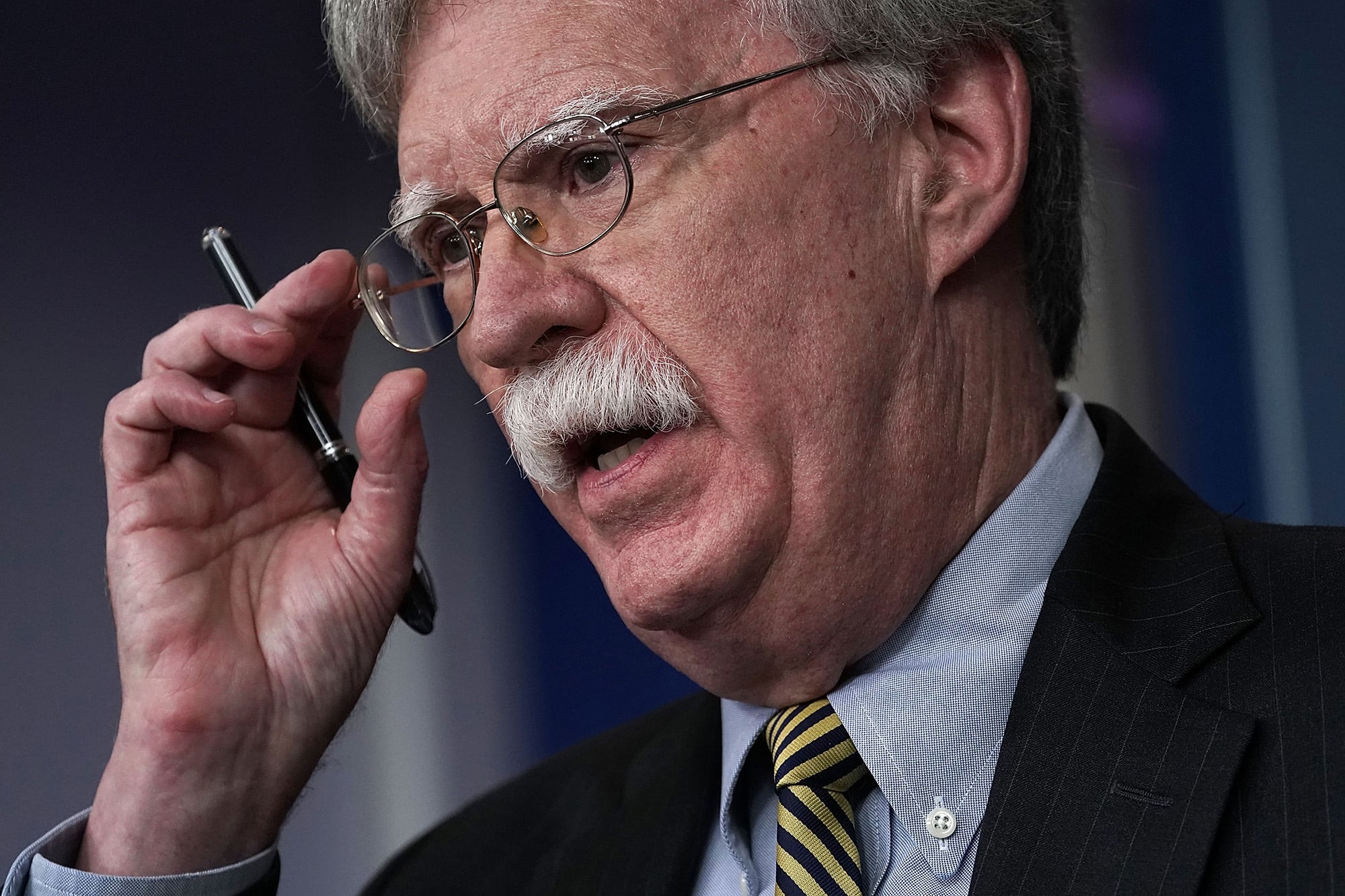In the world’s hot spots from Iran to North Korea — and even among allies — some see opportunity in President Donald Trump’s firing of his national security adviser, John Bolton.
The hawkish Bolton repeatedly pushed Trump toward using military force and sanctions to accomplish the administration’s foreign policy goals.
With him now gone, what could this mean for the U.S. around the world? Here’s what Associated Press journalists see as possibilities.
RELATED

IRAN
Perhaps no country drew Bolton’s ire more than Iran and its Shiite theocracy. Bolton famously wrote an op-ed in the run-up to its nuclear deal headlined: “To Stop Iran’s Bomb, Bomb Iran.” In a speech to an Iranian exile group last year, he vowed, “Before 2019, we here will celebrate in Tehran!”
Bolton’s firing made the front pages of Iranian newspapers across the political spectrum, leading many to think there may be a chance for diplomacy to ease heightened tensions between Tehran and Washington. A possible meeting between Trump and Iranian President Hassan Rouhani has been floated for the U.N. General Assembly meeting in New York later this month.
NORTH KOREA
Bolton’s firing came days after North Korea conveyed a willingness to restart nuclear talks with the U.S. in late September.
North Korea long expressed disdain for Bolton, calling him a “warmonger” and “defective human product” who glorified regime change and pre-emptive strikes.
RELATED

On Wednesday, Trump went so far as to accuse Bolton of scaring North Korean leader Kim Jong Un away from negotiations by mentioning the “Libya model” last year in discussing what an agreement to denuclearize North Korea might look like. Libya’s Moammar Gadhafi was overthrown and killed in 2011 after renouncing weapons of mass destruction.
Trump said Kim wanted “nothing to do with John Bolton.” And the president said he didn’t blame the North Korean leader for being upset.
Still, “the change of one adviser is unlikely to dramatically alter the course of U.S. policy,” said Leif-Eric Easley, a professor at South Korea’s Ewha Womans University.
AFGHANISTAN
The U.S. under Trump has been trying to negotiate an end to the fighting in Afghanistan, the longest war in American history. Both U.S. peace envoy Zalmay Khalilzad and Secretary of State Mike Pompeo have been strong proponents of dealing with the Taliban, something Bolton opposed loudly, and that contributed to his firing.
Early this week, Trump canceled a meeting at Camp David with Taliban and Afghan leaders just when a deal seemed to be at hand. He said the talks were “dead.”
But it seems unlikely that Khalilzad will give up on the deal after a year spent crisscrossing the Middle East and wrangling with Pakistan, Russia and China to get them on board. That fight has been made easier by Bolton’s departure.
ISRAEL
Israel, Prime Minister Benjamin Netanyahu included, has largely kept quiet on Bolton, who shared their concerns about Iran and other regional issues. The Jewish state has called for sanctions to continue on Tehran and is probably worried about the possibility of a direct Trump-Rouhani meeting.
RUSSIA
Bolton never minced words on Russia, once saying Moscow’s meddling in the 2016 election was “a true act of war.” He also supported the Ukrainian government in its fight against pro-Russian separatists. And he called for tougher sanctions on Russia, even as Trump sought a better relationship with President Vladimir Putin.
RELATED

Perhaps tongue-in-cheek, Kremlin spokesman Dmitry Peskov told reporters on Wednesday that Bolton’s resignation is “Americans’ business that we are not going to meddle with.”
Russian Foreign Minister Sergey Lavrov told journalists that while he found Bolton “a very good companion,” he also had “an abrupt style, relying on use of force.”
Without Bolton, Trump will continue his outreach to Russia.
VENEZUELA
Bolton was a leading figure in the Trump administration in pressing for Venezuela’s President Nicolas Maduro to step down so that U.S.-backed opposition leader Juan Guaido could assume power. Last month Bolton announced a fresh round of hard-hitting sanctions.
Bolton in February tweeted that Maduro and his top advisers should retire to “a nice beach somewhere far away from Venezuela,” later warning in an interview that it could be a beach area more like Guantanamo.
A number of Venezuelan officials have been surprisingly mum. But given Trump’s own floating of the possibility of using military force in Venezuela, it is unclear whether Bolton’s absence will signal any softening of his approach.
A tweet from Trump on Thursday seemed to indicate it wouldn’t lead to a softening. “In fact, my views on Venezuela, and especially Cuba, were far stronger than those of John Bolton. He was holding me back!” the president said.
Associated Press writers Tong-hyung Kim in Seoul; Nataliya Vasilyeva in Moscow; Kathy Gannon in Islamabad; Aron Heller in Jerusalem; Joshua Goodman in Bogota, Colombia; Jon Gambrell in Abu Dhabi, United Arab Emirates; and Scott Smith in Caracas, Venezuela, contributed to this report.









